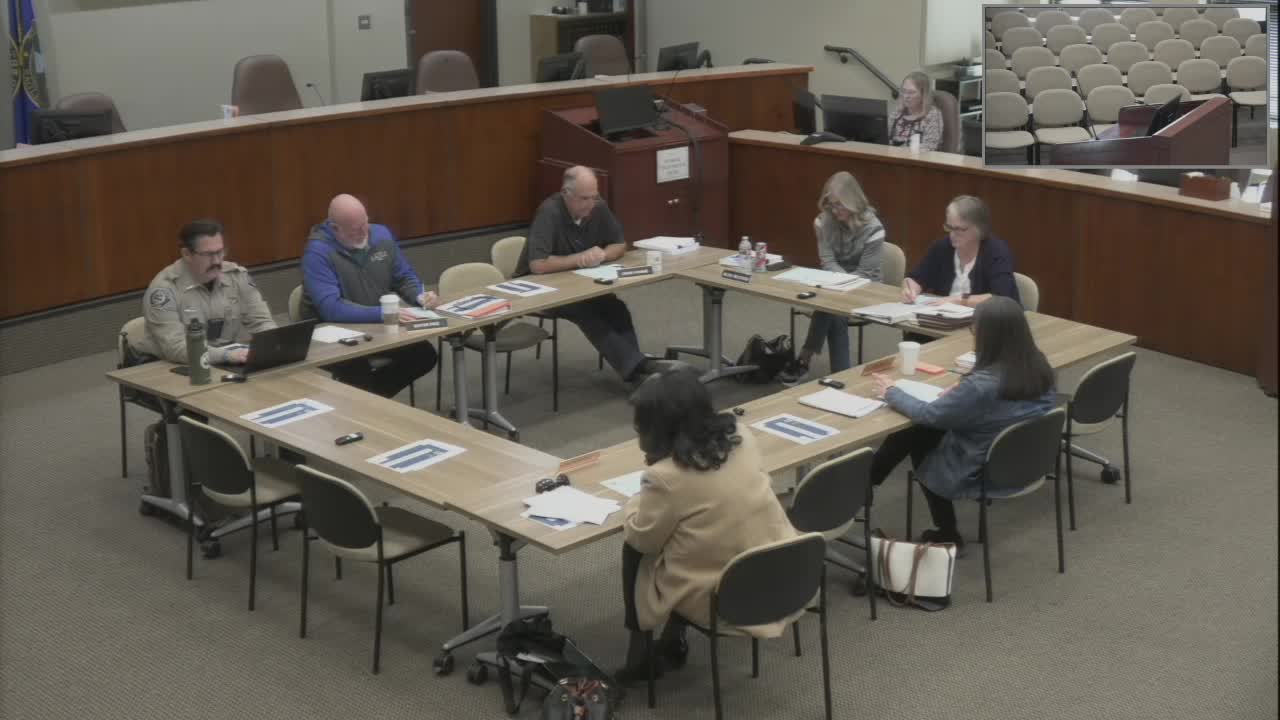Eagle officials discuss police level-of-service study, defer major changes to capital-plan process
Get AI-powered insights, summaries, and transcripts
Subscribe
Summary
City staff and the Eagle City Council reviewed a police level-of-service study (CPSM) on Oct. 21, 2025, discussed staffing metrics, data and impact-fee implications, and directed staff to continue integrating findings into the FY26 capital-plan process rather than adopting immediate policy changes.
City staff and the Eagle City Council reviewed the city’s police level-of-service study on Oct. 21, 2025, and discussed using the study’s recommendations to inform capital planning and impact-fee updates rather than adopting immediate policy changes.
Chief Ruby and city staff summarized the study, which the council accepted in July. Chief Ruby said the city’s police impact fee is currently set at $111 per household and that the FY26 capital plan includes an equipment earmark. “That fee is currently set at $111 per household,” Chief Ruby said. He added that, under the current capital plan, the city may expend up to $900 per new officer for equipment, and noted that some equipment costs run higher than that cap.
Council members and staff focused much of the discussion on how the department logs work. Chief Ruby said deputies often handle brief, in-person or administrative contacts that are not consistently logged as citizen-initiated calls for service, which can undercount workload in the metrics used by the consultant CPSM. “Too often, our deputies are… handling something because it’s a quick phone call, and they’re not logging the activity,” he said. Council members said that undercounting could skew calculations used to determine how many officers the city needs.
The council discussed several study recommendations: adopting a geo-based patrol footprint, conducting a detective caseload study in several years, and reviewing impact-fee methodology. Chief Ruby resisted some consultant recommendations for a solvability-score matrix and mandatory detective rotations, saying the department investigates everything it receives and that mandatory rotations can remove institutional knowledge. He said the department has already realigned some positions based on the study and noted early positive results.
Staff explained that Idaho code requires a capital improvement plan or similar reference in the comprehensive plan to support collection of an impact fee; until the city updates that plan, the 2020 capital-improvement/impact-fee study remains the adopted level of service for impact-fee implementation. City staff recommended integrating any study updates into the upcoming capital-plan process rather than commissioning an immediate new countywide level-of-service study. Options discussed included a two-year audit of updated data, a targeted caseload study for detectives, and working with data-analytics staff and vendors to add call-type fields so officer-initiated and citizen-initiated contacts are distinguishable in reports.
Council members and the chief agreed to continue refining data practices and to revisit the study during the next capital-plan and impact-fee review cycle rather than taking immediate binding action.
